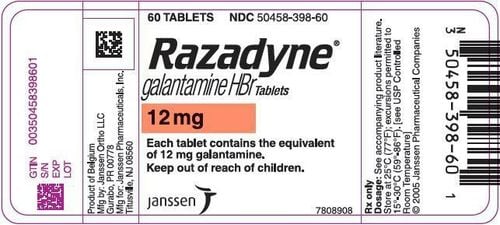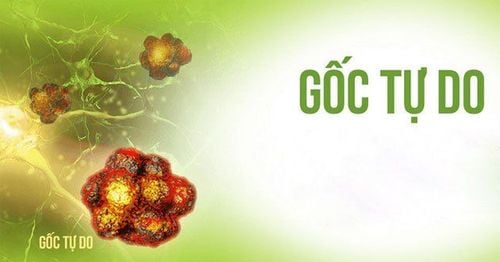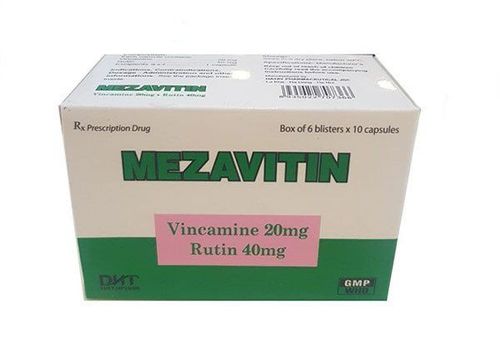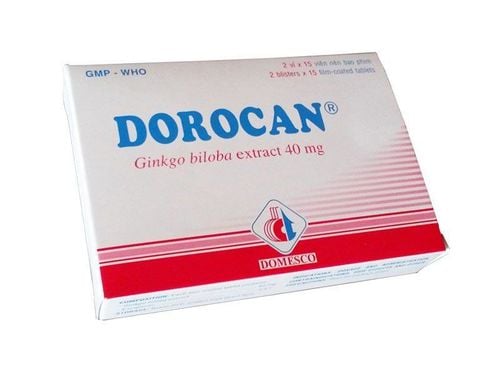This is an automatically translated article.
Alcohol drinkers can experience serious memory impairment, including temporary or permanent memory loss, especially in frequent drinkers, alcoholics or the elderly.
1. Memory impairment in alcohol drinkers
Alcohol can seriously affect memory, specifically as follows:1.1. Short-term memory impairment
Some people pass out after drinking too much alcohol and don't remember what happened before.These circumstances can range from mild (such as forgetting where to put your keys) to severe, such as forgetting what happened during a drunken night.
Alcohol impairs short-term memory by disrupting nerve communication in a part of the brain, called the hippocampus.
The hippocampus plays an important role in the formation and maintenance of memories. When normal nerve activity is slowed or disrupted, transient memory impairment can occur.
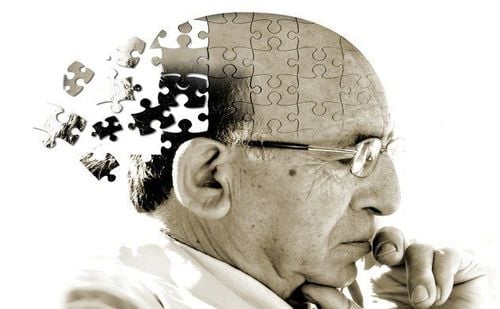
1.2. Long-term memory impairment
Strong alcohol use not only slows down the hippocampus but can also damage its function. The effects of alcoholism can destroy nerve cells. This affects a person's memory in the short and long term.
Also, drinking too much alcohol often leads to vitamin B1 (aka thiamine) deficiency. This vitamin provides energy for the brain and nerve cells.
The mechanism of alcohol memory impairment is due to affecting the efficiency of thiamine use in the following ways:
People who drink a lot of alcohol often do not have a healthy diet, lack of nutrients important. Alcohol irritates the stomach lining, affecting the ability to absorb nutrients. Strong alcohol use can cause vomiting, which prevents the stomach and intestines from absorbing nutrients. Thiamine deficiency can lead to dementia, severe memory impairment, and even permanent memory loss.
Wernicke-Korsakoff syndrome (WKS) is a dementia associated with strong alcohol consumption. To prevent symptoms from getting worse, the patient needs to stop drinking alcohol and build a diet with adequate nutrients.
1.3. Alcohol for the elderly
Elderly people are more susceptible to short-term and long-term memory loss from alcohol use.
As we age, the brain becomes more sensitive to the effects of alcohol. The metabolism in the elderly is also slower, so alcohol stays in the body longer.
In addition, many older people have degeneration of cells in the hippocampus. The condition is usually not severe enough to cause symptoms of dementia. However, if it resonates with the effects of alcohol, memory impairment can become severe.
On the other hand, elderly people tend to take more drugs than younger people. These drugs carry the risk of interacting with alcohol and worsening symptoms.
The elderly are also susceptible to vision loss, problems with balance and bone health. Therefore, the elderly are more likely to fall, especially when using alcohol, because they affect judgment and cognition. A fall can cause injury and affect memory.
Trắc nghiệm xem trí nhớ của bạn tốt đến đâu
Trí nhớ của con người luôn là một đề tài thú vị và nhận được sự quan tâm của nhiều người. Liệu trí nhớ có bị mai một hay thay đổi theo thời gian hay không. Để xem trí nhớ của bạn tốt đến đâu, hãy cùng trả lời 14 câu trắc nghiệm dưới đây.
Bài dịch từ: webmd.com
2. Symptoms of memory loss caused by alcohol
Some of the symptoms of alcohol loss of memory are obvious, such as you wake up after a night of drinking and can't remember what you did or can't remember any events the night before .
If you have any of the following symptoms, you may be suffering from short-term memory loss due to heavy drinking:
You cannot remember the content of a conversation with someone. You often find yourself confused or disoriented, not knowing where you are. You sometimes lose attention. People often tell you about things you did while drinking, but you don't have those memories. Have you ever had a problem with a loved one or the police while drinking, but you don't remember exactly what you did. Drinking alcohol memory decline is often difficult to recognize, especially for older people, because it is most likely a sign of aging.
The following symptoms indicate that an alcoholic has impaired long-term memory:
Unable to remember the exact details of the story, making up small details to fill in the gaps in his or her memory. themselves (similar to those with a condition such as WKS syndrome). There is a significant personality change, like feeling frustrated, or even angry. Often asks the same question over and over again with no sign of recalling asking before. Having trouble learning a new skill, such as playing a new game.

3. Treatment of memory loss caused by drinking alcohol
If you have trouble trying to recall an event from the night before, there won't be much you can do to remember the event. Sometimes a scent, saying, or image can help you replay the incident in your mind, but you certainly can't bring back the memory.
However, there are treatments that will help people who drink alcohol lose their memory and affect their overall function, including:
Oral or intravenous (IV) thiamine supplements : Thiamine supplementation helps alleviate symptoms of WKS, as it addresses the cause of thiamine deficiency. Treatment of alcohol withdrawal syndrome: Stopping alcohol intake can cause symptoms that range from mild (such as nausea and vomiting) to severe and life-threatening (such as heart palpitations, delirium, and hyperthermia). The more you quit drinking, the more likely you are to have life-threatening problems. In this case, you will need hospital treatment so that you can safely quit drinking. Take the drug memantine: This is indicated for the treatment of Alzheimer's disease. The drug has been shown to be effective in treating other types of dementia, such as severe memory impairment caused by alcohol. Avoiding alcohol will help prevent dementia from getting worse. You can limit your alcohol intake or drink in moderation to prevent short-term memory decline.
Drinking alcohol in moderation - one to two drinks in men and one drink in women, several days a week - usually won't affect memory.
If your doctor advises you to stop drinking altogether, you should follow their advice. With that, your doctor can help you with alcohol or smoking cessation.
Please dial HOTLINE for more information or register for an appointment HERE. Download MyVinmec app to make appointments faster and to manage your bookings easily.
Reference sources: healthline.com, verywellmind.com




